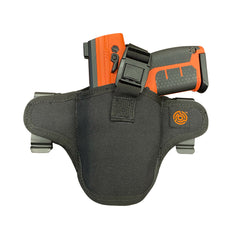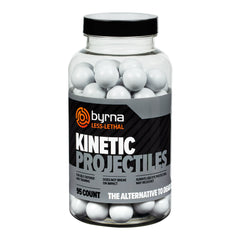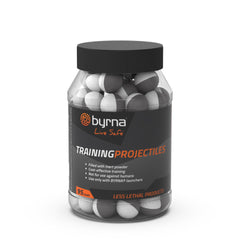
As you might know, bulletproof clothing has now gone mainstream, and you can buy the protection that used to be only for soldiers and police officers. Body armor sales have usually grown by almost 20% each year since 2019 because more ordinary people want to feel safer when they're out and about in public. These protective items generally use some advanced materials to stop bullets while still looking just like the normal clothes you'd wear any day.
Just remember that the laws for buying bulletproof gear can change depending on where you live in America. Most states will naturally let you own body armor with some limits, while the federal laws mostly keep it away from people with felony convictions. You'll find everything from normal-looking t-shirts to backpacks that can stop different types of bullets. Your location and the level of protection you want will determine what you need to buy these items for yourself.
When you shop for bulletproof gear, you need to balance your own safety needs with following the laws in your area. The process isn't always very easy. But taking the time to know the laws actually helps you make better decisions for your situation.
So, let's get started with the federal laws that shape how you can legally own this protective gear in your state!
Table of Contents
Federal Body Armor Laws
The U.S. law doesn't let people with violent felony convictions buy or own any body armor. You'll usually find these laws in the federal laws that control who can have this protective gear. The law basically says that if you've been convicted of a violent crime, then you can't buy or possess any body armor - this includes bulletproof vests and other similar protective equipment.
These laws do have some flexibility in certain situations. If you have a felony record, you might still be able to use some body armor at your job. You'll need to get written permission from your employer first, though. Your boss actually needs to double-check that you need the protection for legitimate work purposes.
Breaking these federal body armor laws can get you into some serious trouble. You could be looking at up to three years in prison as a punishment. That's a severe penalty for having something that many other people can legally own without any problems.

The government usually tacks on some extra penalties, too. If you wear body armor while committing a violent federal crime, then you'll get a much harsher sentence. The same thing happens if you wear it during drug trafficking - your penalties will increase. You could get up to 10 more years in prison for body armor during federal violent crimes or drug offenses. The logic behind it makes sense - when you wear protection, you might feel safer taking even bigger risks.
These laws exist because of safety concerns about who gets access to this kind of protection. Police officers normally already face lots of danger without worrying about criminals wearing bulletproof gear. Congress made these laws to help keep the officers safer when they face dangerous people.
The good news is that if you don't have any criminal record, federal law won't stop you from owning body armor at all. You can buy bulletproof vests, helmets, and other protective gear without any permits. The limits only apply to the people who are convicted of crimes.
These federal laws work as a baseline that applies everywhere in the country. They're just the minimum restrictions on owning body armor. But your state may have added some more laws, too. Some states create much stricter laws beyond what the federal government requires.
State Armor Laws
The state laws about bulletproof gear can vary quite a bit across the country. You'll find different laws depending on where you live or travel. In Connecticut, you can only buy your body armor in person - Connecticut just doesn't allow online or mail orders.
When you look at Louisiana, they're generally more concerned with who can actually buy bulletproof vests instead of how they're sold. Kansas takes a different strategy and focuses on where you can wear your protective gear, which makes some public locations off-limits.
New York has recently changed its laws to limit body armor sales to only professionals - that means that you might not be able to buy the same protection that police officers use if you're just an average citizen. In California, anyone can usually buy body armor. But you'll naturally have some extra charges if you wear it while committing a crime.
Look at the states like Michigan and New Jersey. They'll usually add even more charges if you wear body armor during violent crimes. Judges generally don't like seeing someone who showed up ready for violence. When you wear a bulletproof vest, you're basically telling the court that you expected things to get dangerous.

These state-by-state differences can get tough when you travel around. Imagine if you're driving from Texas to Illinois with some body armor in your car - what's completely legal in one state might break the law in the next state over.
To make things even tougher for you, some cities have their own laws on top of the state laws. A protective vest that you can legally own in a rural area might not be allowed at all in a nearby city in most cases.
The states create these different laws based on their own local crime situations. Areas that see more armed robberies tend to have much stricter body armor laws. Think about how they're trying to prevent criminals from becoming harder to stop when they wear protection during their crimes.
You might occasionally see some news stories about these legal differences. They sometimes feature business owners who bought body armor legally in one state, only to face charges after moving to another state. Of course, you should check your local laws before buying or traveling with any protective gear.
Bulletproof Material Data
Bulletproof gear now looks nothing like the heavy vests that police wore years ago. You can now find some protective clothing made with materials that can usually stop bullets while still feeling light enough to wear.
Kevlar probably sounds familiar to you. It's been around since the 1970s, and it works quite like a catcher's mitt for bullets in most cases. The strong fibers basically grab and hold the bullet before it can pass through.
The newer plastic-based material with the tough name of UHMWPE gives Kevlar some serious competition. You'll find that it's even lighter but still stops the same threats just as well, actually. People reach for UHMWPE products because they don't weigh you down as much during your long shifts.
Kevlar has some cousins named Twaron and Alkex that can protect you in similar ways, too. Manufacturers often work these materials into layers to create your protective shield. When a bullet hits the vest, the fibers spread the energy across the whole vest - this spreading action stops the bullet completely and cuts back on how much force you feel from the impact.

You can get the best protection when manufacturers combine different materials together in your gear. Look for vests that combine flexible Kevlar with hard ceramic or steel plates that can stop rifle rounds. The ceramic works by shattering the bullet on contact, while the backing material then catches whatever's left. This team strategy tends to protect you better than just one material alone.
Let's see how finances matter when you're comparing different bulletproof options for yourself. You'll initially spend less money on Kevlar. But it might wear out faster in tough conditions over time. UHMWPE generally costs more to buy, but it tends to last longer and holds up better when wet.
Remember that your environment can affect how well your protective gear works from day to day. Some materials just don't perform as well when they get soaked or overheated. UHMWPE handles temperature changes a little better than Kevlar does.
Armor Design Options
Bulletproof clothing has evolved from those chunky vests that you might remember from before! You can now buy some standard-looking jackets, hoodies and t-shirts with hidden armor panels inside of them. These items actually help you stay safe without making you look like you're wearing any protective gear at all.
You can even buy armored backpacks - like our Ballistipac backpack!

You'll find that most of the concealable bulletproof clothing uses soft armor with an NIJ Level IIIA rating - that means that you're protected against common handgun rounds - like 9mm and 44 Magnum bullets. The materials tend to be very light, so you can wear them comfortably all day long without any problems.
When you need some more protection, plate carriers give you even better options. These vests generally hold hard armor plates that can even stop rifle rounds, too - some of the police officers try these when they might run into more dangerous situations in the field.
You'll always find a good balance between protection and comfort with your bulletproof gear. More coverage often means better safety and can add some weight and heat to your body. People say that after wearing their lightweight vests for a few hours they barely even notice them anymore.
In recent years, custom-fitted armor has become more common. Businesses now make bulletproof gear that matches your body shape and size. When your armor fits you well, it stays in place better when you move around quite a bit.
One person shared that he wore his bulletproof hoodie for about six months before even telling his wife what it actually was. The hoodie looked so normal that nobody ever guessed it contained materials that might save his life - this kind of discretion is what standard people normally want when they're buying protective clothing.
You'll appreciate that many bulletproof clothing items have extras like moisture-wicking fabric and ventilation. Also, these features make your gear more comfortable when the weather gets hot outside. Some products even come with cooling systems built right into them.
As a bonus, do you want to adjust your protection level based on where you're going each day? Consider a modular system that lets you add or remove protection as needed. You might wear basic soft armor for everyday situations, but add plates when you travel through areas that feel less safe to you. Again - this is something our Ballistipac backpack excels at!
Certification and Authenticity Verification
Your bulletproof gear usually needs to meet the safety standards before it shows up in the stores - this helps to make sure that the gear will protect you when you need it most. You can check for this by looking for the certification from the National Institute of Justice (NIJ).
The NIJ puts the body armor through a few tests to make sure that it works. They check to see if it can actually stop bullets and how well it holds up in different weather conditions over time. Products that pass get the NIJ seal of approval, which shows that they meet the right safety standards. Think of this seal as an assurance that the gear will do its job.
Always look for the NIJ "Listed Model" logo when you're buying bulletproof gear. You can check the NIJ's Compliant Product List online to verify a product's certification.

Watch out for tricky wording like "NIJ-style" or "meets NIJ standards" - these aren't the same as the certification. Just remember to only trust the gear that has real NIJ certification. Does your gear have the logo on it? If not, you might want to rethink your purchase. For example, our Ballistipac backpack is NIJ certified.
Fake bulletproof gear looks like the real thing, but it won't protect you when you need it. Trusted manufacturers will normally give you clear facts about their testing and certification process. They'll show you the proof that their products meet legal standards without any hesitation. Can't check out their information? You should take that as a warning sign and look elsewhere.
For your safety, ask for the certification documents when you buy any bulletproof gear. Respected businesses will give you this information. You'll probably pay more for the certified gear. But the extra cost can give you some real protection. After all, your personal safety might depend on having gear that actually works. It's better to save your money elsewhere - not on something designed to protect your life.
Protect Yourself and Your Family
Naturally, you want to feel protected. That means learning about the laws regarding body armor at the national and state levels. When you're aware of what's allowed in your state and follow those guidelines, you can avoid problems while staying on the right side of the law. What kind of protection makes the most sense for your personal situation?
Protection technology has come a long way, and it can provide you with more options than just the traditional gear. Try to find some protection that fits well with your life while staying within the legal boundaries. The materials in our safety equipment can protect you well while being comfortable enough to wear. Does your latest safety plan give you any options that work well with your activities?
Before you choose any protective equipment, you should probably think about which situations worry you the most. When you know what's available and what's allowed, you can make better decisions for your own requirements. Do you want helpful self-defense without firearm complications? Byrna could be the right choice for you.

Our less-lethal tools are generally legal in all 50 states, with no background checks needed. Our patented CO2 system helps you protect yourself effectively. As a bonus, we also offer you armored backpacks and other protection products.
Visit Byrna.com to see how thousands of our customers have found security with our products.




